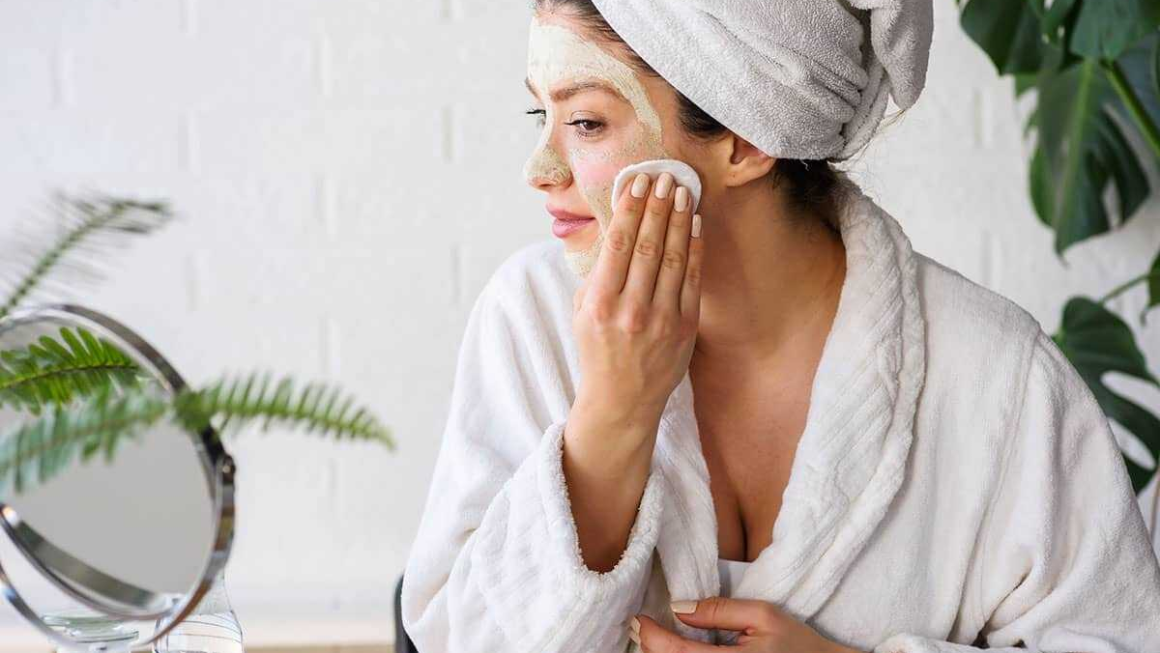When it comes to caring for sensitive skin, finding the right exfoliant can be a daunting task. The best exfoliants for sensitive skin strike a fine balance between removing dead skin cells and preserving the skin’s natural barrier. This article will explore both chemical and physical exfoliants that are suitable for individuals with delicate skin concerns, ensuring you can enjoy the beautifying effects of exfoliation without irritation or discomfort.
Understanding Exfoliation and Sensitive Skin
Exfoliation is a crucial skincare step that assists in shedding dead skin cells, promoting cell turnover, and revealing a fresher, vibrant complexion. However, those with sensitive skin must approach exfoliation with caution as their skin is more prone to irritation, redness, and damage from harsh ingredients or aggressive techniques. Understanding the specifics of exfoliation and the unique needs of sensitive skin is the first step towards achieving a glowing complexion without adverse effects.
Why Exfoliation is Essential
Exfoliation plays a vital role in maintaining healthy skin by removing old skin cells that can clog pores and cause dullness. It can also improve the penetration and effectiveness of skincare products and make the skin appear more youthful and radiant. But for those with sensitive skin, exfoliation must be gentle to avoid triggering inflammation or exacerbating existing skin conditions.
The Challenges of Sensitive Skin
Sensitive skin is characterized by a tendency to react to certain ingredients and environmental factors. This reactivity makes it essential to carefully select skincare products that will not disrupt the skin’s delicate ecosystem. With exfoliation being an added variable, it’s crucial to understand the types and ingredients that will benefit sensitive skin without causing harm.
The Importance of Choosing the Right Exfoliant

Choosing an appropriate exfoliant for sensitive skin is not just about the immediate aftermath of use but also about long-term skin health. The goal is to find products that can provide the necessary exfoliation without causing a negative reaction, such as inflammation or skin barrier breakdown.
Chemical vs. Physical Exfoliants: What’s Best for Sensitive Skin?
Chemical exfoliants use acids or enzymes to dissolve dead skin cells, while physical exfoliants rely on a manual scrubbing action. For sensitive skin, chemical exfoliants are typically recommended because they are more predictable and less likely to cause irritation when used properly.
Ingredients to Avoid in Sensitive Skin Exfoliants
Regardless of the type of exfoliant, certain ingredients should be avoided if you have sensitive skin. Alcohol, synthetic fragrances, and high concentrations of acids can all lead to undesirable reactions. Always opt for exfoliants with gentler formulations meant specifically for sensitive skin.
Top Recommended Exfoliants for Sensitive Skin

Finding suitable exfoliants for sensitive skin involves a bit of research and awareness of what works well with your skin type. Below are recommendations and examples of formulations that tend to be well-tolerated by sensitive skin.
Chemical Exfoliants: Gentle Acids That Work Wonders
Chemical exfoliants can be more gentle than physical scrubs, dissolving dead skin cells without any rubbing or scraping. They typically fall into two categories, Alpha Hydroxy Acids (AHAs) and Beta Hydroxy Acids (BHAs), which work differently to achieve similar results.
The Magic of Alpha Hydroxy Acids (AHAs)
AHAs like lactic and mandelic acid are water-soluble, working on the surface of the skin to improve texture and tone without penetrating too deeply, which could be irritating. They’re particularly suitable for dry and sensitive skin types.
Beta Hydroxy Acids (BHAs): Deep Clean Without Harshness
BHAs, such as salicylic acid, are oil-soluble, allowing them to work deeper within the pores to combat congestion. However, even this usually potent acid can be suited for sensitive skin when used in lower concentrations.
Physical Exfoliants: Soft Scrubs for Delicate Care
Not all physical exfoliants are off-limits to sensitive skin. Gentle physical exfoliants can help slough off dead cells when used with a light hand and infrequent application.
Jojoba Beads and Rice Bran: Natural and Non-Irritating Options
Exfoliants that feature natural, smooth agents like jojoba beads offer a gentle alternative to harsher scrubs. They’re round and non-abrasive, providing a mild exfoliating experience that’s suitable for sensitive skin.
Soft Sponges and Cloths: Mild Mechanical Alternatives
For those who prefer a bit of manual exfoliation, using a soft sponge or a microfiber cloth can help remove dead skin cells. These tools can be controlled more easily to apply the exact amount of pressure needed for delicate skin types.
How to Exfoliate Sensitive Skin Safely
Exfoliation should be approached with care, particularly for sensitive skin. By following a guided regimen and paying attention to your skin’s reactions, you can reap the benefits of exfoliation safely.
Step-by-Step Guide for a Gentle Exfoliation Routine
1. Start with a clean face. 2. Apply your chosen exfoliant according to the instructions, or use your soft cloth or sponge with a gentle touch. 3. Remove the product thoroughly, preferably with lukewarm water. 4. Pat your face dry with a clean towel. 5. Follow up with a soothing, hydrating moisturizer. 6. Monitor your skin for any signs of irritation throughout the process.
The Role of Aftercare: Soothing and Protecting Your Skin
Aftercare is crucial for preventing irritation and restoring moisture. Using a gentle, non-irritating moisturizer can help soothe and protect the skin after exfoliation. Additionally, incorporating ingredients like hyaluronic acid or ceramides can help maintain the skin’s hydration and barrier function.
Incorporating Exfoliation into Your Sensitive Skincare Regime
Maintaining a healthy balance in your skincare regime when you have sensitive skin is about tailoring your approach to your skin’s specific needs. It requires patience and adjustment as you determine what frequency and products work best for you.
Building Tolerance: Slow and Steady Wins the Race
Sensitive skin might need time to build tolerance to exfoliants. It’s best to start slow, with lower concentrations and less frequent applications. As your skin adapts, you can gradually increase the intensity of your exfoliation routine, provided your skin remains calm and irritation-free.
Tailoring Frequency and Products to Your Skin’s Needs
Your skin’s tolerance will guide how often you should exfoliate and what products to use. Keep close tabs on how your skin responds after each exfoliation session to determine the most suitable routine for your sensitive skin.
Conclusion
Sensitive skin doesn’t mean you have to miss out on the benefits of exfoliation. By understanding your skin’s unique needs and choosing the right type of exfoliant, whether it’s a gentle chemical option or a soft physical one, you can achieve a glowing, smooth complexion without causing irritation. Remember to introduce new products slowly and listen to your skin’s response as you find the perfect balance in your gentle exfoliation routine.
FAQs
- What is the best type of exfoliant for those with sensitive skin? For sensitive skin, chemical exfoliants with low concentrations of AHAs or BHAs, such as lactic acid or salicylic acid, are often preferred over physical exfoliants, as they are less likely to irritate the skin when used correctly.
- How often should I exfoliate if I have sensitive skin? Start with once a week, and observe how your skin reacts. If your skin tolerates the exfoliation without irritation, you may gradually increase the frequency to 2-3 times a week as advised by a dermatologist.
- Can I use a physical exfoliant if I have sensitive skin? Yes, but choose a gentle physical exfoliant like a soft sponge or products with smooth, natural beads like jojoba beads rather than harsh scrubs with sharp edges.
- Are there signs that I’ve over-exfoliated my sensitive skin? Yes, over-exfoliation can lead to redness, burning, peeling, dryness, and increased sensitivity. If you experience these symptoms, reduce the frequency of exfoliation and consult a skincare professional.
- Should I apply moisturizer after exfoliating my sensitive skin? Absolutely. It’s important to follow up with a soothing, fragrance-free moisturizer to hydrate the skin and help restore the skin’s protective barrier after any type of exfoliation.



